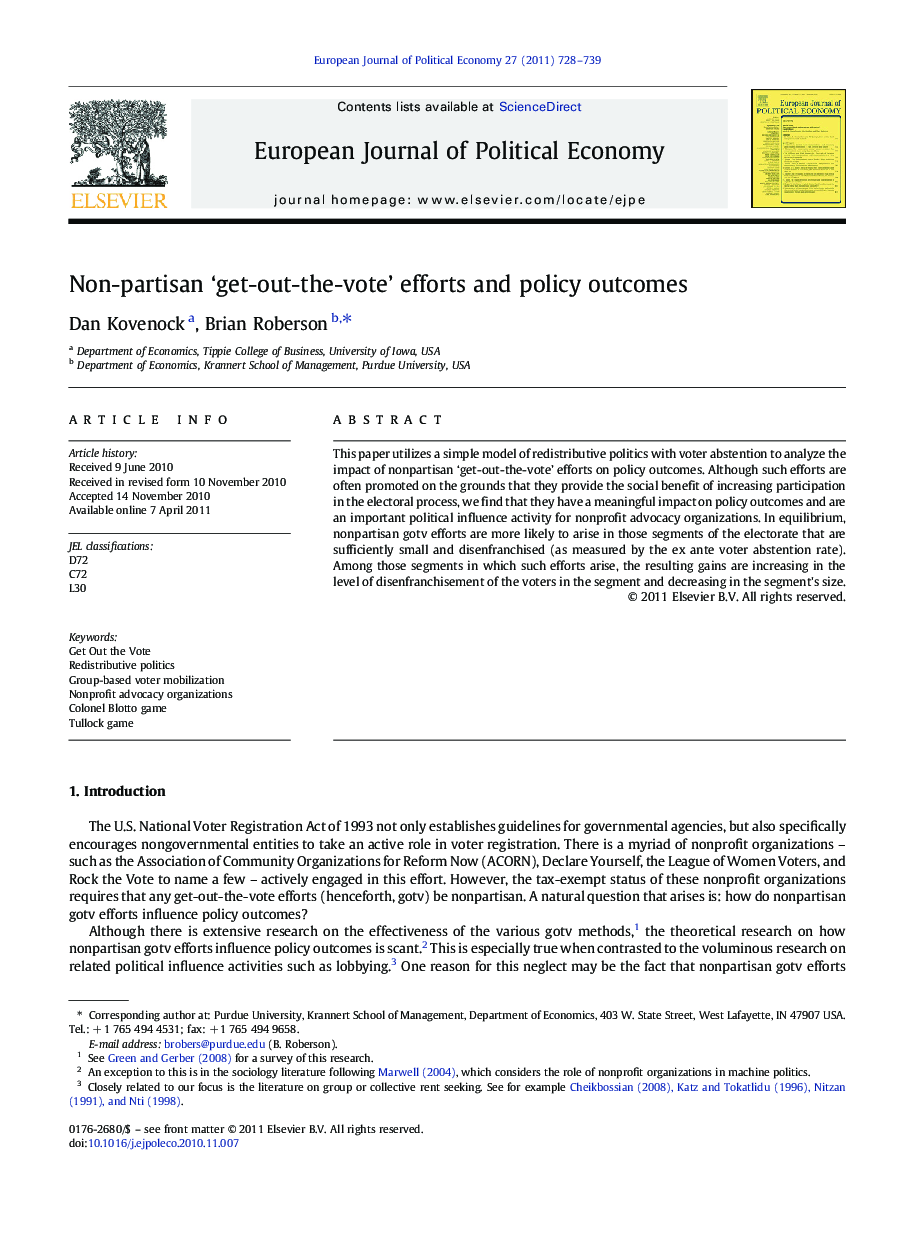| Article ID | Journal | Published Year | Pages | File Type |
|---|---|---|---|---|
| 5068270 | European Journal of Political Economy | 2011 | 12 Pages |
This paper utilizes a simple model of redistributive politics with voter abstention to analyze the impact of nonpartisan 'get-out-the-vote' efforts on policy outcomes. Although such efforts are often promoted on the grounds that they provide the social benefit of increasing participation in the electoral process, we find that they have a meaningful impact on policy outcomes and are an important political influence activity for nonprofit advocacy organizations. In equilibrium, nonpartisan gotv efforts are more likely to arise in those segments of the electorate that are sufficiently small and disenfranchised (as measured by the ex ante voter abstention rate). Among those segments in which such efforts arise, the resulting gains are increasing in the level of disenfranchisement of the voters in the segment and decreasing in the segment's size.
Research highlights⺠We examine twoâparty redistributive competition across segments of voters. ⺠Non-partisan gotv groups expend effort in a first stage. ⺠Positive efforts arise in segments that are small and disenfranchised. ⺠Segments' gains decrease in size and increase in the level of disenfranchisement.
